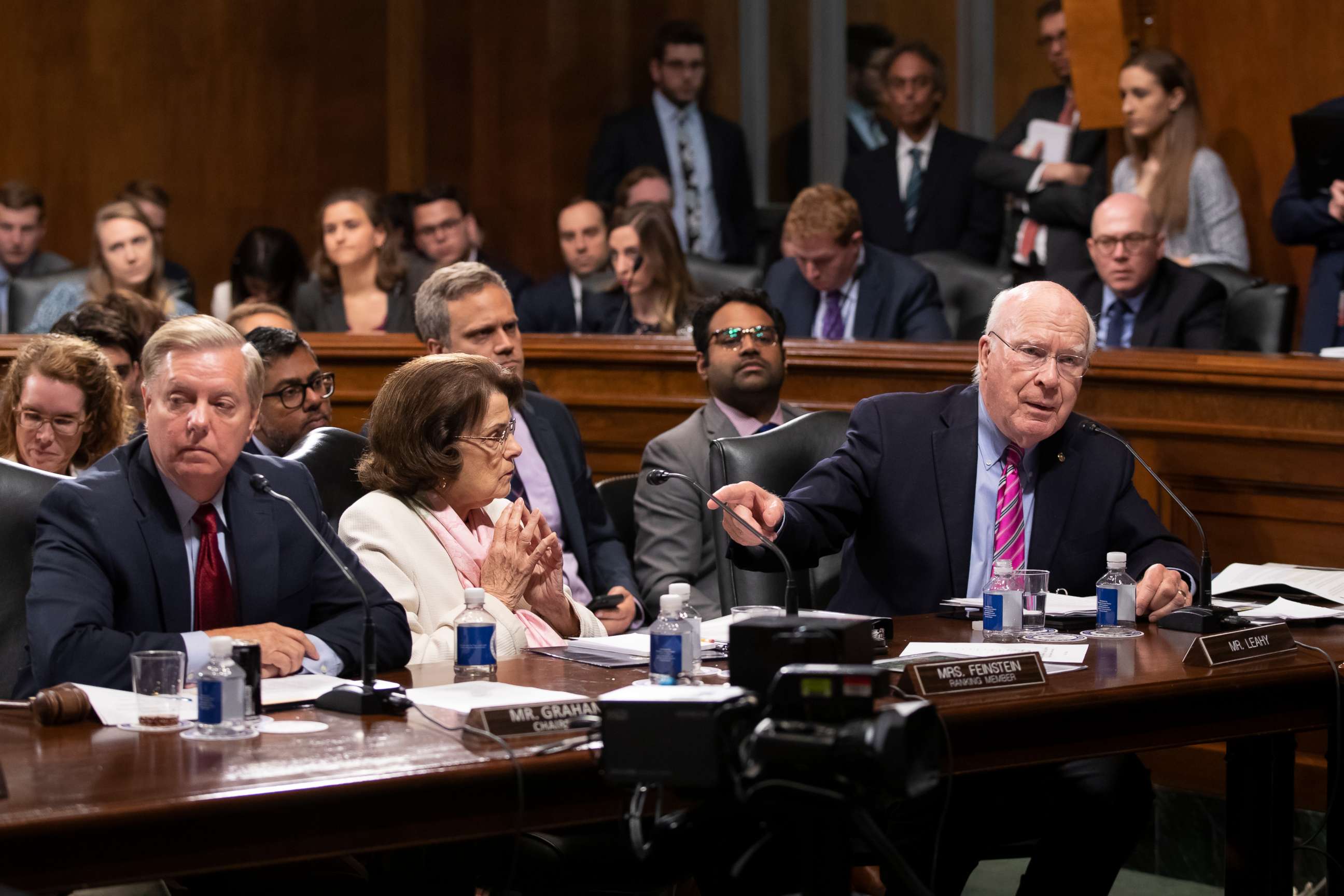Graham, Leahy get into heated exchange over proposed asylum rule changes
Senate Democrats opposed GOP-proposed asylum rule changes.
The Senate Judiciary Committee broke into partisan acrimony Thursday over legislation designed to change the nation’s asylum laws, authored by Trump ally Sen. Lindsey Graham – chairman of the panel -- in ways that Democrats strongly oppose.

Frustrated by a failure at crafting bipartisan changes, Graham struck out on his own and made the rare decision to upend the panel’s rules in order to push through his bill on a party line vote, with some Democrats fearing he had poisoned the well for bipartisanship for good.
“I have done a lot of talking and a lot of working,” a visibly-rattled Graham said of attempting to collaborate with Democrats, indicating that it was “clear” to him that Democrats – particularly in the House – had no desire to change the nation’s laws regarding asylum in order to alleviate the crisis at the southern border.

Patrick Leahy, D-Vt., the panel’s most senior member and a former chairman, condemned the move by Graham saying that the committee had become “nothing more than a conveyor belt under the control of Donald Trump.”

Leahy, holding up a copy of the rules – then tearing them in half -- noted that “every single Republican voted for these rules” along with all committee Democrats.
“I like to think they mean something,” Leahy lectured his colleagues, adding, “I like to think I can rely on them…These rules are no longer in effect.”
Graham, tasked by President Trump to make changes to the asylum process, first made an effort to work with Sen. Dick Durbin, D-Ill., and even crossed the Capitol to attempt to negotiate with House Speaker Nancy Pelosi only to find little common ground.
Democrats failed to show up for a committee meeting last week where this bill was to be considered -- depriving Republicans of a necessary quorum to consider legislation -- angering Chairman Graham, R-S.C., who this week suspended the panel rules to force through the bill, called the “Secure and Protect Act of 2019.”
The legislation, which stands little chance of passage in the narrowly-divided Senate, would require those seeking asylum in the U.S. to apply first in their home countries or country of origin, but Democrats say asylum seekers are often making a life-or-death decision to flee their homes seeking refuge in a safer country, like the U.S.
But opponents of the proposal are most critical of the chairman’s upending of the long-standing Flores agreement – a consent decree which says children crossing the border illegally with families can be detained no more than 20 days.
The Graham measure would set the number of days a family can be held together at 100, thereby preventing family separations.
The measure also would fund 500 new immigration judges and allow unaccompanied Central American minors to be sent back to their home countries.
“I tried for seven weeks,” Graham said. “I worked with you as long as I could, but you’re not going to take my job away from me.”
“You may not like what we do over here. You can vote ‘no,’” Graham chastised Democrats who he said had not showed up just to sabotage him. “This committee is not going to be the dead-end committee….We’ll see if we can get votes on the floor, and maybe it won’t.”
Leahy shot back, “I would just note for the record, I was not here last week because a member of my family was being buried.”
Committee Democrats Amy Klobuchar of Minnesota and Sheldon Whitehouse of Rhode Island both called the rare move by Graham “illegal.”
“I’m sick right now with what we have done,” Whitehouse, who is friends with Graham, said. “We are in a Majority free-for-all in which no courtesy matters.” The senator said, “What’s the point? It would be one thing if this bill stood a chance of passing,” even quoting Graham’s past statements saying that immigration reform could only happen if it was bipartisan.
“This is supposed to be the Senate Judiciary Committee, not the Donald Trump committee,” Leahy decried.
“Frankly, after this breaking of the rules, I think it will be harder not easier,” Sen. Chris Coons, D-Del., said.




